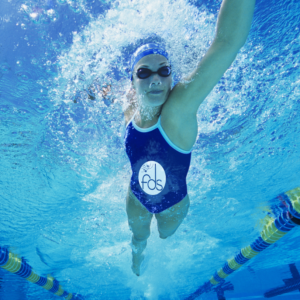High-level athlete at the Faculty of Science: Manon's testimony
 For the 2020-2021 academic year, 22 students from the Faculty of Science have been granted status as high-level athletes.
For the 2020-2021 academic year, 22 students from the Faculty of Science have been granted status as high-level athletes.
At all levels - from Licence 1 to Master 2 - they specialize in various sports such as volleyball, sailing, soccer, rugby, golf, first aid, underwater sports, athletics, handball, triathlon.
By virtue of their status and the contract they have signed with our University, they are worthy representatives of our establishment at inter-university meetings.
In order to combine their studies with their training, top-level athletes can ask their school to adapt their university studies.
This applies to exams, courses and so on.
Due to the current health context, we were only able to gather one testimonial, that of Manon, who shares her personal experience here.
"Aged 20, I've been practicing lifesaving sports since I was 8, at the Pôle France Sauvetage in Montpellier, which is attached to the CREPS. I've been selected 3 times for the French national team. My current goal is to qualify for the 2022 World Games.
I'm currently studying for a bachelor's degree in Ecology and Organismal Biology (Licence 2), and later plan to do a master's degree in Ecology and Marine Biology.So I have a dual project: sporting and academic.
Thanks to the special arrangements for high-level sportspeople, I was able to choose to do my L2 in 2 years in order to achieve my goals as much as possible, which means I can do half of my TU this year and the other half next year.
My daily routine:
Every morning, I get up at 6 a.m. to go to training (in the pool) from 7 to 9 a.m.. Back home, I attend my distance learning classes from 9.30am to 12.30pm. I take a 2-hour break to eat, rest and take care of any imperatives. Then I return to training from 2.45pm to 4.45pm.
At the end of this second daily training session, I return home and revise my lessons. Twice a week, I add a workout in the weight room from 7pm to 8:30pm.
I also have one or two physiotherapy sessions a week to recover and repair any minor aches or injuries.
In total, I do 22 hours of sport a week. This fast pace requires a great deal of rigor and organization, so as not to exhaust myself throughout the year.
With my health situation, I have very few face-to-face classes. Distance learning courses, and in particular recorded videos, allow me to manage my time differently, and to work on the courses when I want to during the day, without really being bound by a timetable. This suits me better in terms of my relatively busy day-to-day life.
Unfortunately, intercollegiate competitions have been cancelled since I arrived at college."